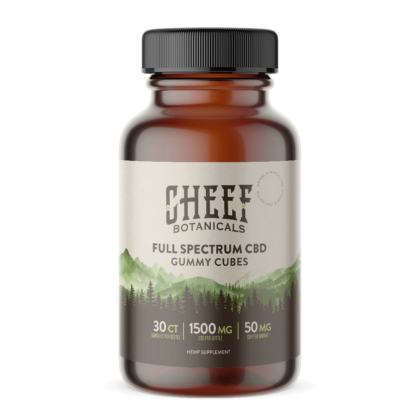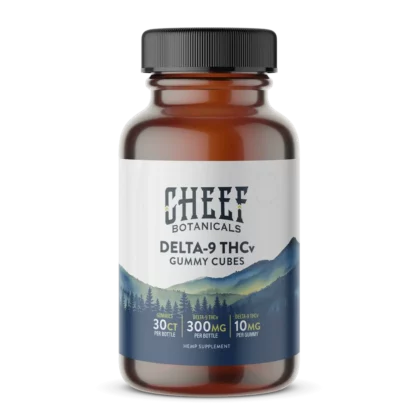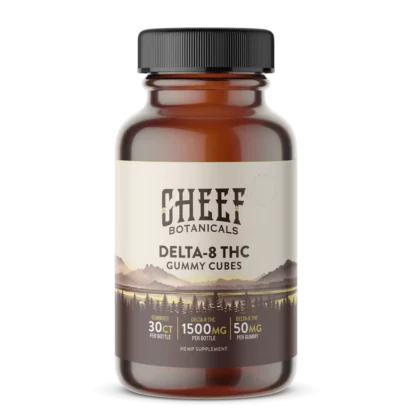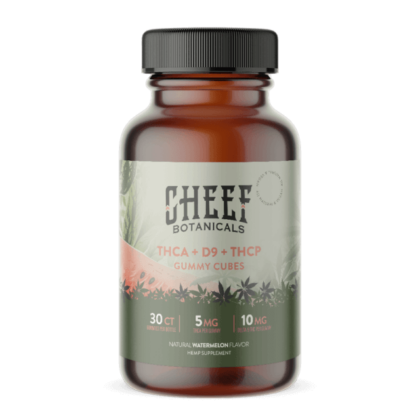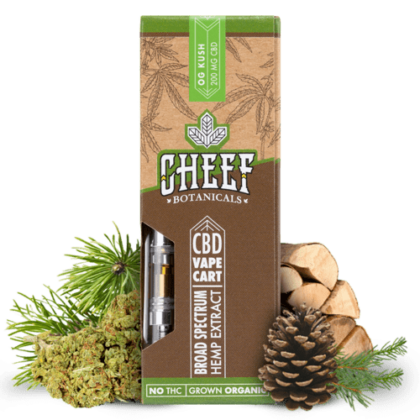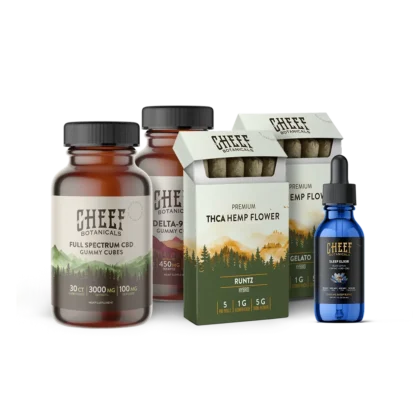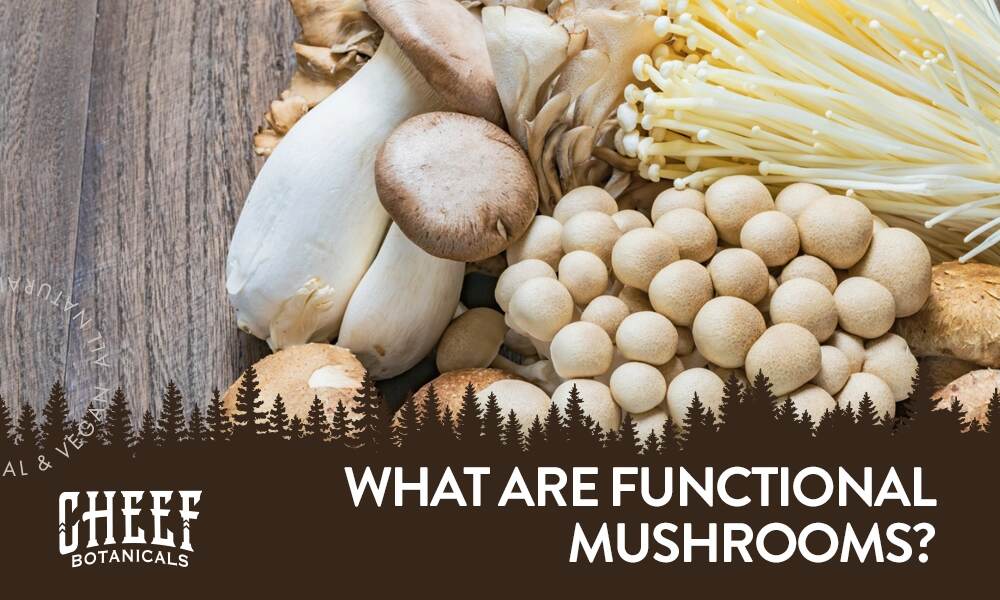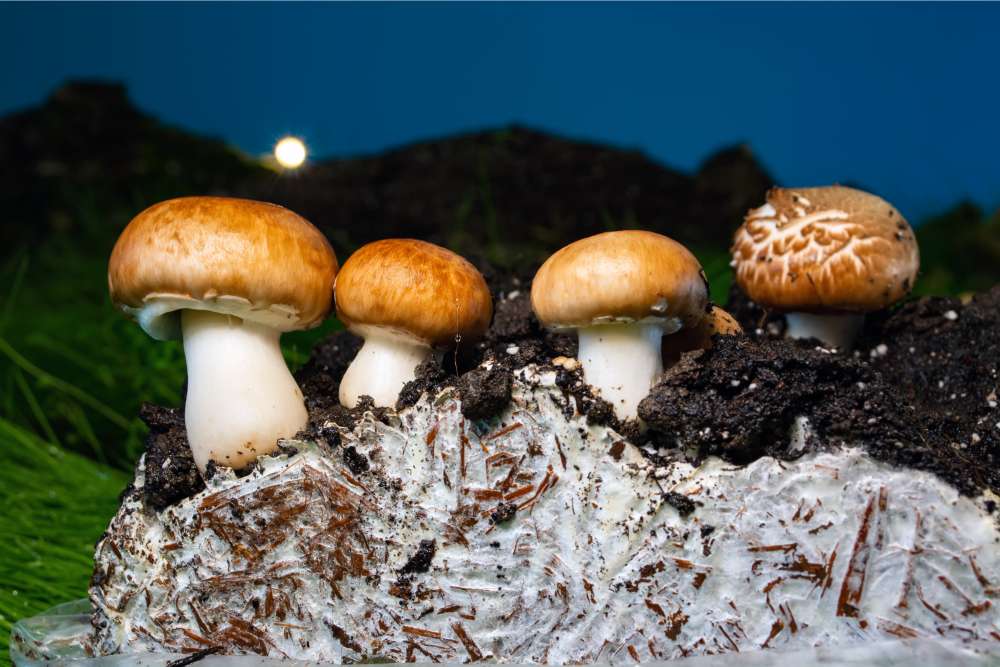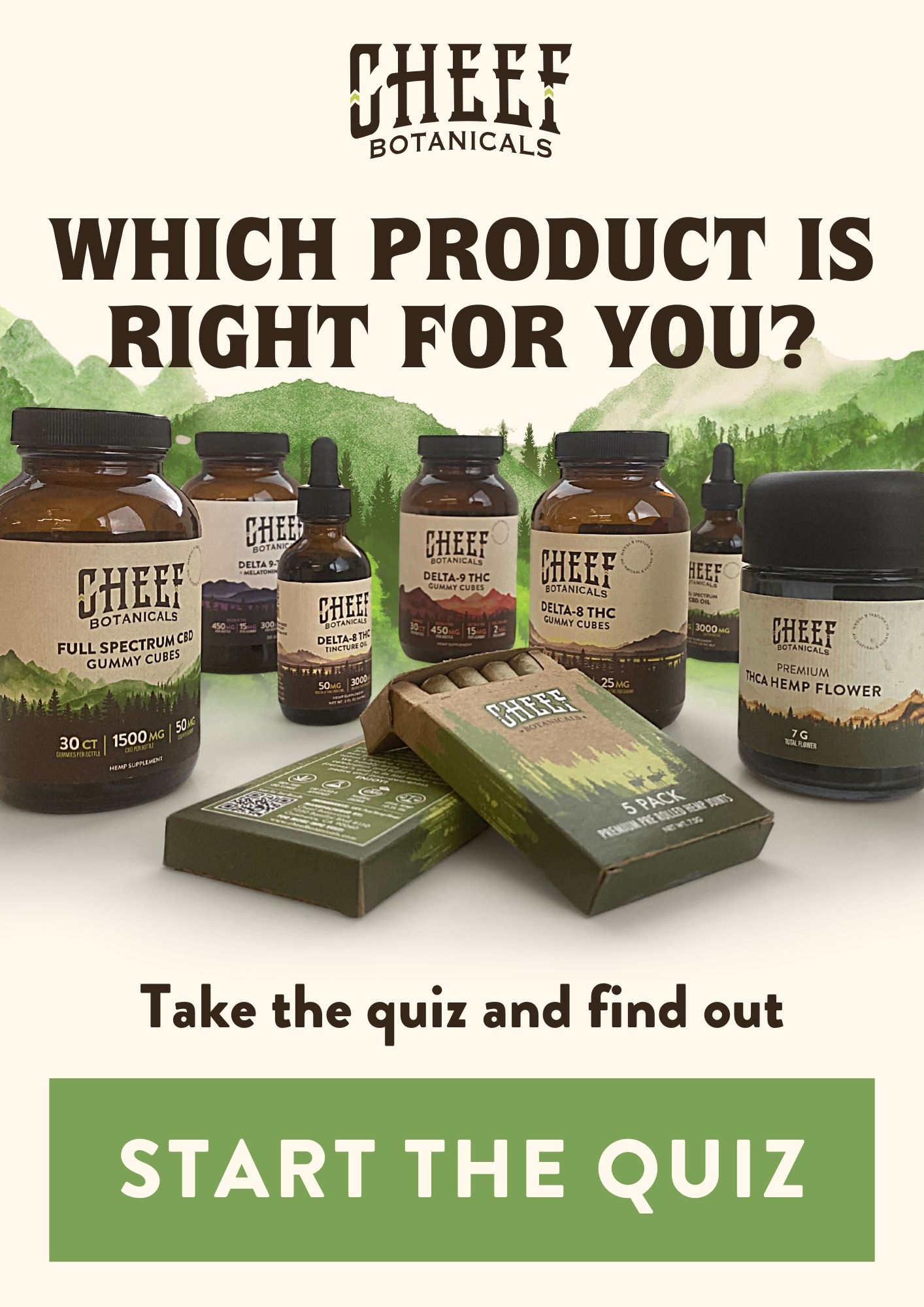Functional mushrooms have been a food source for cultures around the world for several millennia. However, their benefits aren’t just limited to their savory flavor and nutritional value. These edible mushrooms contain unique compounds that can help get our minds, bodies, and lives back on track. So what are functional mushrooms?
Revered by Eastern cultures, these ancient wellness solutions have recently gained popularity in the West. With health-conscious consumers looking for all-natural solutions to support their mental and physical well-being, functional mushrooms offer a unique holistic option for maximum wellness. Come with us as we take a deep dive into the world of functional mushrooms. We’ll examine what they are, what they can do, the various varieties available, and how you can easily incorporate them into your daily routine for complete wellness from the ground up!
What Are Functional Mushrooms?
Functional mushrooms are edible fungi that offer consumers potential health benefits beyond mere dietary and nutritional value. These are not the same as the typical baby bella and white button mushrooms you see in the produce section of your local grocery store. Although fully edible — and quite delicious, might we add — functional mushrooms offer consumers more than just a palate-pleasing culinary delight. With an assortment of fantastic fungi to choose from, the benefits of functional mushrooms vary. Each available mushroom variety contains unique compounds and special properties that can support either your mind or body and, in some cases, both.
Functional mushrooms, also known as medicinal mushrooms, have a long history of use across cultures worldwide, thanks to their renowned health and nutritional benefits. These benefits have been validated by both historical use and modern scientific research, leading to a surge in their popularity in recent years. For those seeking natural, holistic approaches to wellness, functional mushroom supplements provide a unique and time-tested solution. Indeed, functional mushrooms offer a grounding approach to health—quite literally from the earth up!
Functional Mushroom Anatomy
Functional mushrooms consist of two main parts: the fruiting body and the mycelium. The fruiting body is the above-ground portion of the mushroom and consists of the stem and the cap. Most of the beneficial compounds in functional mushrooms are contained within the fruiting body. In fact, most functional mushroom products contain exclusively fruiting body extracts for maximum wellness potential.
In contrast to the fruiting body, the mycelium is the underground portion of the mushroom. The mycelium is a network of thin, tubular segments resembling roots. They’re responsible for nutrient delivery and exchange. Mycelia networks are incredibly compact and can branch out indefinitely. They can span hundreds or even thousands of miles, constantly expanding and connecting different plant life across the entire planet!
Although you can purchase mycelia extracts, fruiting bodies contain the majority of beneficial compounds in functional mushrooms. Most functional mushroom products sold typically do not contain mycelia or mycelia extracts.
Are Functional Mushrooms Hallucinogenic?
Functional mushrooms are not hallucinogenic and do not contain any euphoric compounds. Psychedelic mushrooms, on the other hand, contain psilocybin, a naturally occurring hallucinogen. Psilocybin is federally illegal and a Schedule I drug under The Controlled Substances Act (CSA).
Are Functional Mushrooms Legal?
Yes, functional mushrooms are 100% legal. Functional mushrooms are considered dietary supplements and regulated as food, not drugs, by the Food and Drug Administration (FDA). It’s also important to note that the FDA has not approved the use of functional mushrooms for medical purposes, nor do they consider them to be preventative solutions, treatments, or cures for any diseases or medical conditions you may or may not have.
Adaptogenic Mushrooms vs. Nootropic Mushrooms
Not all mushrooms are created equal. Functional mushroom varieties can be classified as either adaptogenic or nootropic. Each functional mushroom species falls into either of these categories based on its unique benefits. Some might even showcase both adaptogenic and nootropic qualities. Let’s take a closer look at the differences between adaptogenic and nootropic mushrooms and the general benefits of each category.
What Are Adaptogenic Mushrooms?
Adaptogenic functional mushrooms contain natural compounds known as adaptogens, which may help manage the effects of stress on your body. These functional mushroom species may also provide benefits that help keep your body in balance. By helping you maintain equilibrium, adaptogenic mushrooms can potentially support your homeostasis and overall well-being. Adaptogens are nothing new. Chances are you already incorporate them into your wellness routine. Ashwagandha and ginseng are two examples of adaptogens popular with consumers that deliver similar stress response support to your body.
What Are Nootropic Mushrooms?
Nootropic functional mushrooms contain natural compounds that can support brain health and help improve cognitive function. These fantastic fungi may help with focus, concentration, and learning. Regular consumption may allow you to demolish mental barriers and help unlock your mind’s creative potential. Like adaptogens, nootropics are nothing new. In fact, you’re already well aware of the benefits of nootropics! Famous examples include caffeine and creatine, two staples of modern Western society.
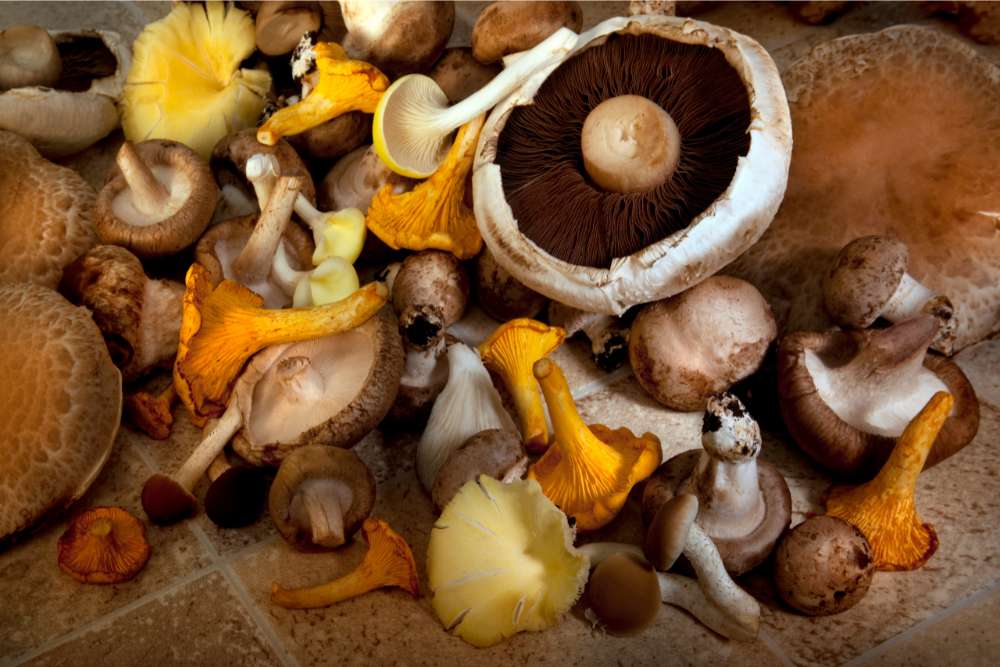
General Benefits of Functional Mushrooms
Traditional Chinese Medicine (TCM) and alternative medicine have long been using the benefits of mushrooms. Western science is quickly catching up. All functional mushroom species contain several important compounds and properties that deliver benefits to the consumer. These include:
- Beta-glucans. These powerful polysaccharides are soluble fibers that have been shown to promote healthy immune system function. Beta-glucans may also play a key role in supporting good cardiovascular health.
- Immune-supporting compounds. In addition to beta-glucans, functional mushrooms contain various other compounds that may help to boost your immune system function.
- Antioxidants. Functional mushrooms are rich repositories of antioxidants. These compounds help protect your cells from damage caused by harmful molecules in your body.
- Vitamins, minerals, and other beneficial compounds. Expect a wide range of nutrients in functional mushrooms. There are too many to mention here, but rest assured that these nutrients will help support your overall well-being and promote a healthier, happier you.
Specific mushrooms can deliver additional benefits that are unique to themselves. Many of these functional mushroom species are now available in a concentrated supplement form for convenient consumption. Yet the most effective supplements are ones that contain a blend of several functional mushroom species. To fully understand the range of benefits of functional mushrooms, we have to examine each of the main types individually.
The Top 7 Types of Functional Mushrooms & Their Benefits
Although functional mushrooms share a few similarities, each type has its own incredible benefits that can help your overall well-being. With so many different types to choose from, you can easily find specific mushrooms to address your wellness needs. But why stop at just one? For a truly holistic approach, many will find combining several functional mushroom species beneficial for a more comprehensive wellness solution. But before you go mixing and matching functional mushrooms, you must understand the benefits of each species. Let’s examine the seven most popular functional mushrooms in detail and how they can help support your health and wellness.
Chaga (Inonotus obliquus): The King of Mushrooms
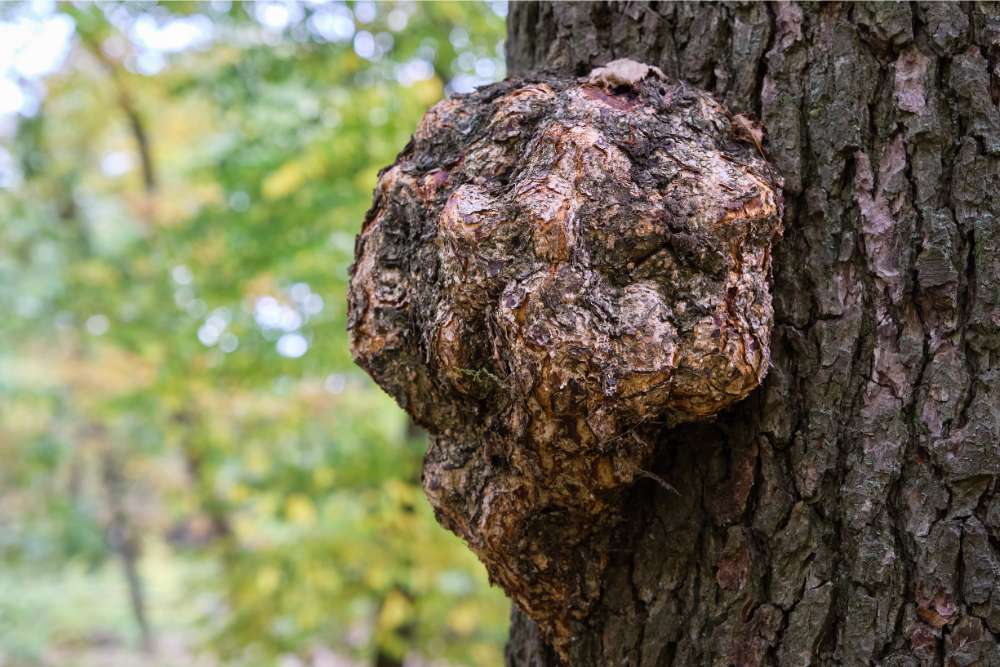
As one of the most popular functional mushrooms, it may surprise you that Chaga is not a mushroom at all! Rather, it’s a conk, otherwise known as a canker. These growths occur after a parasitic fungus has taken up residence in a tree. In this particular instance, birch trees host this fungus, eventually producing Chaga mushrooms that protrude from the tree. These visually striking fungi don’t resemble other mushrooms. Chunky and dense with a black crust, the Chaga mushroom looks just like the bark of the birch trees on which they grow.
Chaga is an adaptogen and can help the body handle multiple stressors. Containing a robust assortment of beneficial compounds such as beta-glucans, betulin, and melanin, to name a few, the potential benefits of Chaga mushrooms include:
- Encouraging digestive regularity and proper gastrointestinal health
- Providing metabolites to help cells from aging prematurely
- Soothing dry, irritated skin and helping to reduce redness
- Easing physical fatigue and helping to elevate exercise endurance and ability
- Supporting memory and cognitive performance
- Helping support immune function and response
Cordyceps (Ophiocordyceps sinensis): The Energy Mushroom

Cordyceps mushrooms are upward-extending finger-like projections that boast a range of light yellow hues to bold bright-orange colors. The two main species of this functional mushroom are Cordyceps militaris and Cordyceps sinensis. The former can be grown commercially, typically in a suitable substrate such as soy or white rice, while the latter typically grows in nature. Recently, Cordyceps sinensis was renamed to Ophiocordyceps sinensis. Why the recent name change? It turns out that this particular family of Cordyceps creates a darker, more pigmented look than others.
Cordyceps mushrooms are typically found in areas of the world with warm, humid climates. This mushroom species is common in the mountainous areas of China and grow on caterpillars native to the region. Yes, you read that right — caterpillars! In fact, Cordyceps can develop on other insects, too! The typical life cycle of Cordyceps starts with spores landing on an insect. The spores germinate and turn into mycelium, eventually consuming the insect from the inside until the fruiting body sprouts from the insect’s head. All this might sound gross, but this unique life cycle gives rise to one of the most beneficial functional mushroom species available.
Cordyceps are powerful adaptogenic mushrooms that contain natural precursors to adenosine triphosphate (ATP), the main molecule responsible for delivering energy to our cells. As a result, Cordyceps may help those who live active lifestyles adapt their bodies to physical stress.
The potential benefits of Cordyceps mushrooms include:
- Elevating physical endurance and energy levels
- Boosting libido and supporting sexual performance
- Helping to reduce stress
- Supporting healthy immune system response and function
- Supporting healthy urinary and cardiovascular function
Lion’s Mane (Hericium erinaceus): The Brain Mushroom
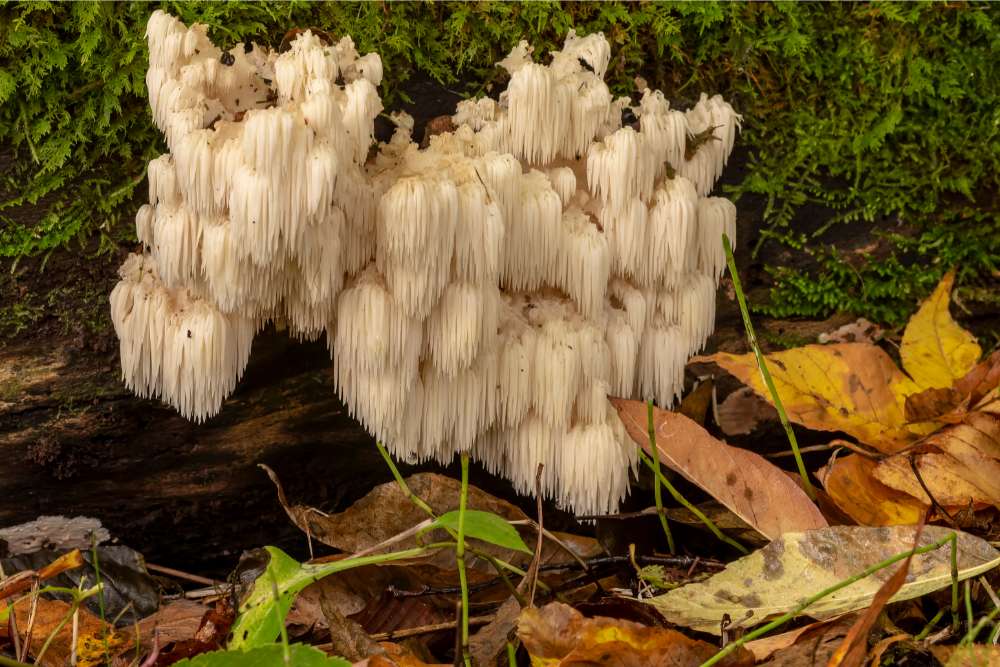
The Lion’s Mane mushroom sports spherical, bulbous clusters with thin, white tendrils that droop down. This visually striking shaggy white giant resembles a fluffy lion’s mane, hence its name. The mushroom’s origins can be traced back thousands of years to Asia, where ancient civilizations exploited it for its perceived medicinal benefits and culinary delicacy. Today, Loin’s Mane mushrooms typically grow on dead or decaying hardwood trees and fallen logs throughout the Northern Hemisphere.
Lion’s Mane demonstrates powerful nootropic effects that benefit your brain health and support cognitive function. The mushroom has always been popular with Buddhist monks who require clear-minded focus, concentration, and mental endurance during demanding meditation sessions. Within Lion’s Mane are natural compounds called erinacines and hericenones. These compounds play a critical role in cognitive function by boosting the production of nerve growth factor (NGF), a protein responsible for supporting healthy brain cells. Both compounds are thought to play a role in proper neurological function.
The potential benefits of Lion’s Mane mushrooms include:
- Providing mental energy and supporting brain health for optimum memory, focus, and cognitive performance
- Helping to support memory and reducing brain fog
- Lowering anxiousness and irritability
- Elevating mood and encouraging a positive mindset
- Supporting proper immune health and function
- Complementing the sleep-wake cycle for deeper, longer, more restful sleep
Maitake (Grifola frondosa): The Dancing Mushroom
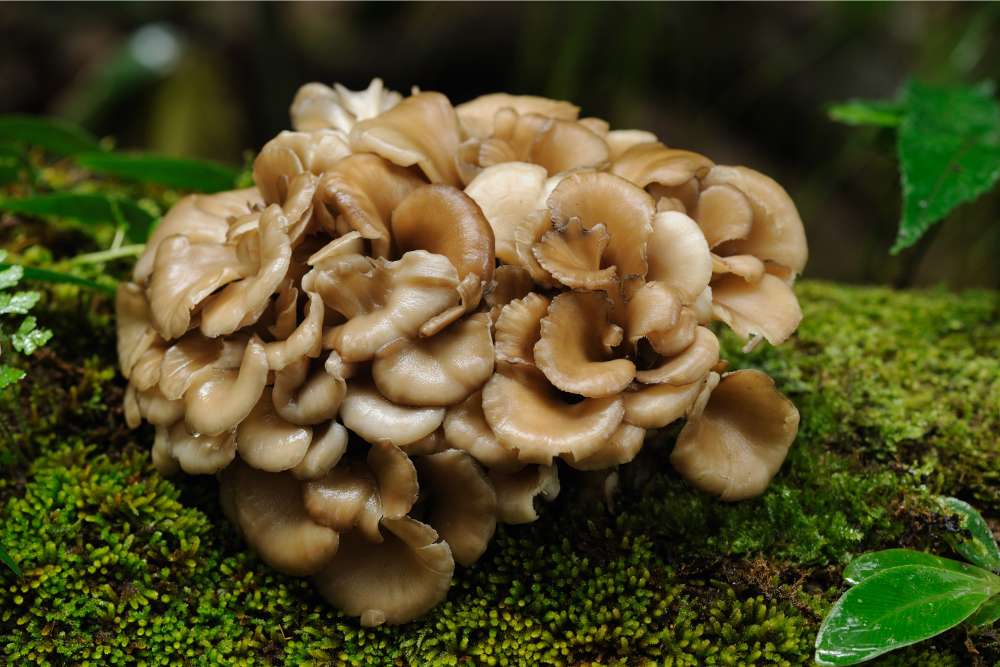
Legend has it that people danced with immense joy when discovering Maitake mushrooms in the wild. The name itself, “Maitake,” quite literally means dancing mushroom in Japanese. However, Americans might know Maitake as the “hen-of-the-woods” because it resembles a perched hen’s tail feathers. This frolic-inducing fungus has quite the reputation for its reputed and highly sought-after health benefits.
Maitake mushrooms grow in overlapping clusters of flattened caps that flower out from a single, thick stem. They grow at the bottom of Elm, Oak, and Maple trees in dense forests of Asia and North America. Extremely flavorful and fragrant, Maitake mushrooms contain a rich assortment of beneficial compounds such as beta-glucans, antioxidants, and vitamins B and C. Together, the many compounds deliver powerful adaptogenic and nootropic properties.
The potential benefits of Maitake mushrooms include:
- Promoting healthy gut flora and digestive regularity
- Helping deal with mental stress that influences emotion and mood
- Encouraging healthy immune system function
- Boosting the body’s natural defenses against harmful, unregulated growths
- Supporting a healthy cardiovascular system by helping to reduce potential artery-clogging compounds
- Helping your body maintain balanced blood glucose levels naturally
Reishi (Ganoderma lucidum): The Immortality Mushroom

There are over 2,000 species of Reishi all around the world. The most common species are Ganoderma lucidum and Ganoderma lingzhi in China. Unlike other functional mushrooms, Reishi is a polypore with tiny pores instead of gills on its underside. The mushroom is shaped like a kidney, with a shiny outer coat accentuating its dominating red, orange, yellow, and brown hues.
For over 4,000 years, the East has revered the Reishi mushroom for its supposed medicinal properties, earning it the nickname “Mushroom of Immortality.” The Reishi mushroom contains hundreds of bioactive compounds, including trace elements, antioxidants, proteins, peptides, and, most notably, triterpenes, which are immune-modulating compounds. Over 400 compounds support the body in several ways, making the Reishi mushroom a powerful adaptogen that primes your body for an adequate stress response.
The potential benefits of Reishi mushrooms include:
- Helping reduce stress and anxiousness
- Providing deep, restful sleep by calming the mind
- Providing mental clarity to help improve focus and cognitive performance
- Aiding the immune system by keeping it strong and responsive
- Supporting cardiovascular and respiratory function for increased stamina
- Maintaining healthy bladder and urine flow
Shiitake (Lentinus edodes): The Umami Mushroom
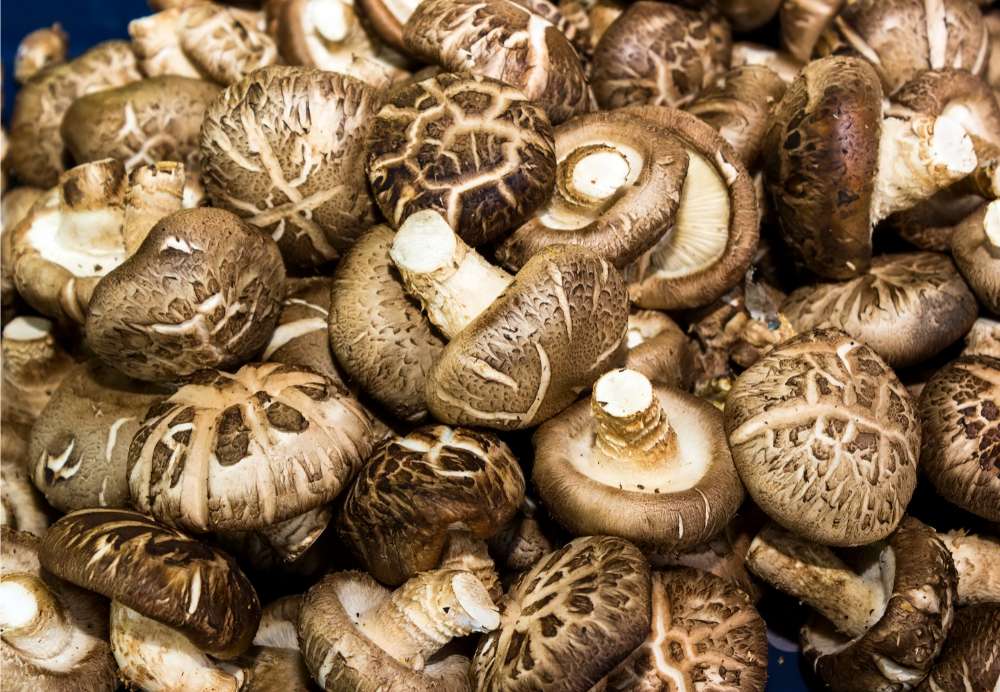
The Shiitake mushroom is one of the world’s most popular functional mushrooms, and for a good reason. They’re a favorite culinary luxury thanks to their rich, meaty texture and smoky umami flavor. Shiitake mushrooms sport a light to dark brown color and wide, puffy caps. They typically grow on decaying hardwood trees in warm, moist, mountainous regions of East Asia.
For more than 6,000 years, people have been using Shiitake as a medicinal mushroom to help fortify their immune health. The secret to Shiitake mushrooms lies in their powerful assortment of bioactive compounds and nutrition profile. Although rare in other food sources, Shiitake mushrooms include high doses of copper, selenium, zinc, vitamin D, and essential amino acids, all vital to immune health.
The potential benefits of Shiitake mushrooms include:
- Keeping the immune system alert and prepared to combat infections
- Supporting cardiovascular health for proper circulation
- Maintaining muscle and bone health
- Easing joint stiffness and mobility issues
- Boosting energy levels naturally
- Revitalizing skin and hair for a natural, healthier appearance
Turkey Tail (Tramates verisicolor): The Cloud Mushroom 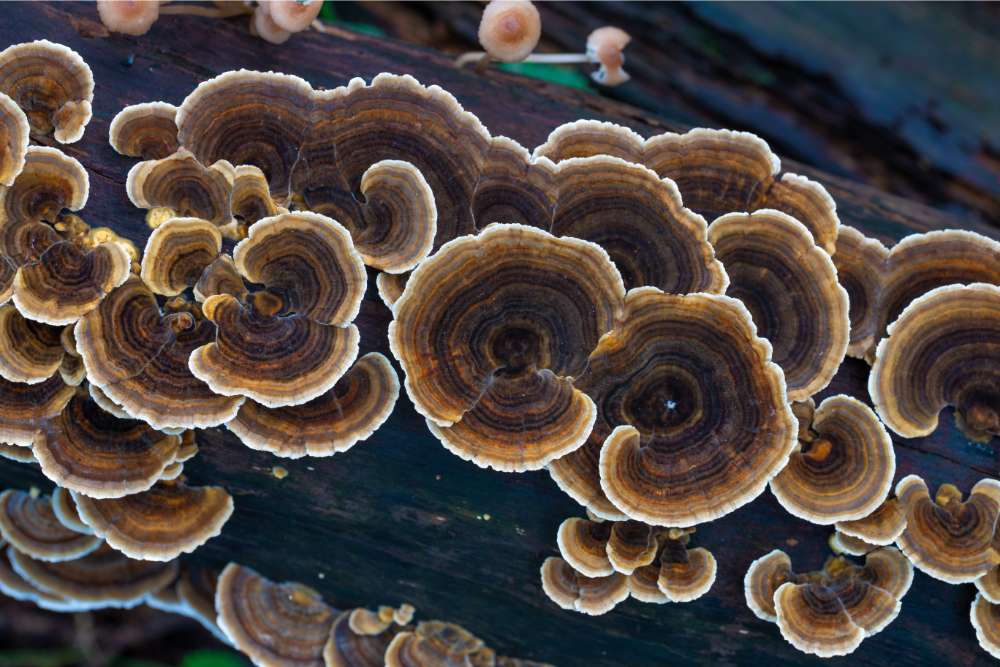
With unique fanned shapes and vibrant colors that resemble a turkey’s full plumage, Turkey Tail mushrooms are a sight to behold. The Chinese call Turkey Tail the “Cloud Mushroom” because of its rippling, undulating shapes. Common throughout North American woods, foragers often find these mushrooms growing on fallen, decaying wood in high-moisture areas.
A favorite amongst practitioners of TCM, these adaptogenic medicinal mushrooms have quite the reputation for aiding immune function. That’s because Turkey Tail mushrooms contain the highest concentration of beta-glucans of all functional mushrooms. As previously mentioned, these compounds help keep your immune system healthy, especially when regularly consumed. In addition, several beneficial polysaccharides within Turkey Tail also help to modulate immune system activity.
The potential benefits of Turkey Tail mushrooms include:
- Promoting a healthy and robust immune response
- Aiding digestion and easing upset stomach
- Stabilizing stress activity to feel more grounded and centered
- Helping combat harmful everyday toxins to maintain cellular health
- Supporting liver health by assisting natural detoxification processes
What To Consider When Trying Functional Mushrooms for the First Time
Setting realistic expectations is important if you’re considering incorporating functional mushrooms into your diet. The benefits of functional mushrooms aren’t instant. Give yourself time to experience their positive effects. Consistency is key to reaping the benefits, so make sure to consume the recommended amount regularly. Also, you will need to consider how to best consume functional mushrooms. Cooking functional mushrooms every day is something that is not realistic. Chances are your local grocer might not even have certain species in stock. Finding high-quality functional mushroom supplements is the easiest and simplest way to get your functional mushroom fix.
How To Incorporate Functional Mushrooms Into Your Wellness Routine
If you’re unsure how to incorporate functional mushrooms into your routine from a culinary standpoint, consider taking daily supplements instead. Daily options include pre-dosed functional mushroom gummies and soft gels, to name a few. For maximum potency, it’s best to opt for functional mushroom supplements that contain fruiting body extracts. These contain the most beneficial compounds of each functional mushroom species.
Remember that these supplements are neither a substitute for medical advice nor cures, treatments, or alternatives to any prescription drugs you may be taking. Consult your doctor or healthcare professional before incorporating functional mushrooms into your wellness routine.

Possible Side Effects of Functional Mushrooms
Functional mushrooms are generally very well tolerated and do not typically produce any side effects. However, you may experience mild, temporary side effects if you overindulge in these magical fungi. It’s important that you’re mindful of the suggested serving size of functional mushrooms and functional mushroom products. The recommended serving size is typically found on the product packaging.
Overindulgence in functional mushrooms can lead to side effects such as:
- Headaches
- Dryness in mouth, throat, or nose
- Nausea and vomiting
- Diarrhea
- Insomnia
- Possible allergic reaction to compounds within certain mushrooms
If you experience any of these symptoms, don’t worry — they should pass once you stop consuming. Give it a few hours, and you’ll be fine. In the case of an allergic reaction to compounds within certain mushrooms, it’s recommended that you seek medical care. Although these side effects are rare, it’s always best to practice moderation, and you’ll be able to enjoy all the wellness benefits of functional mushrooms without any disruptions!
What To Look for When Buying Functional Mushroom Products?
Are you interested in adding functional mushrooms to your diet but need help figuring out where to start? Here are some things you should look for when purchasing functional mushroom products:
- Check for a Certificate of Analysis (COA). Make sure the mushrooms are grown in a quality-controlled environment. Look for a COA, a third-party lab report that verifies the purity and potency of your functional mushroom supplements.
- Go for mushroom diversity. Look for functional mushroom blends that contain a variety of mushroom types for maximum benefits.
- Consider the form factor. Functional mushrooms can come in raw, dried, powder, capsule, gummy, and other forms. Choose what’s best for you. For easy, discreet, and portable options, it’s best to go for a pre-dosed form factor such as gummies or soft gels.
- Pay attention to dosage. If you’re new to functional mushrooms, you don’t want to overdo it. Like all wellness products, start low and go slow, gauge the effects, and then increase the amount you consume accordingly if needed.
- Buy from reputable brands. Don’t just settle for the first brand you come upon when searching for functional mushroom products for sale online. Shop with reputable wellness brands with a history of providing all-natural solutions and a proven track record of consumer satisfaction. Your best bet is to shop online for maximum convenience, options, and price.
- Don’t hesitate to ask questions. If you need clarification on a product, contact the company for more information. Reputable wellness brands will have a customer service department ready and willing to answer any questions you may have.
With these tips in mind, you’ll be well on your way to incorporating functional mushrooms into your daily routine to boost your health and wellness.
Final Thoughts – What Are Functional Mushrooms?
Functional mushrooms are not only delicious, but also loaded with incredible health benefits. For thousands of years, cultures around the world have used these little wonders for their amazing benefits, which extend well beyond just simple dietary nutrition. The secret lies in naturally occurring compounds within each fruiting body. From supporting your body’s stress response to elevating cognitive function to providing a holistic way to optimize your overall health and well-being, these fabulous fungi have become popular with wellness-minded consumers looking to take a holistic approach to their health. With various types to choose from, each with its unique properties, there’s a functional mushroom for everyone.
Luckily for consumers, many functional mushrooms can easily be found at your local grocery store. However, to really maximize their benefits, it’s best to consume them regularly in supplement form as they contain blends of complementary mushrooms. So why not try incorporating functional mushrooms into your routine and see the positive impacts on your body and mind? You’ll be happy you did, and your mind, body, and soul will bloom because of it!

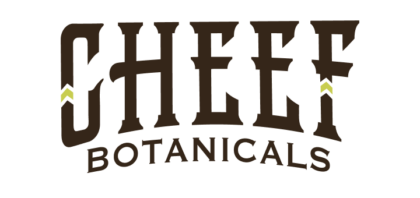
 Sale
Sale 